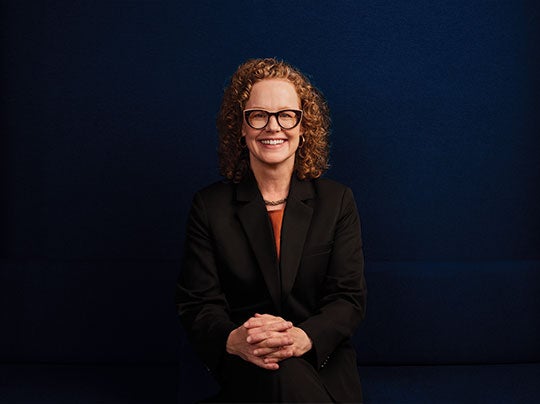The Medical Experience, Humanized
Rice’s new Medical Humanities Research Institute expands the conversation around health care.

Spring 2024
By Mike Williams
Rice’s Medical Humanities Research Institute, formed in 2023, studies how people experience medical care amidst the steady advance of science and technology, paying special attention to the cultural factors that shape health and illness.
“A lot of what happens in biomedicine addresses the physiological ailments or injuries of the patient without really looking at the whole person,” says Kirsten Ostherr, the institute’s director. “We look at the whole person and factor that in to how we define, understand and experience health and disease. This can include prevention, but it can also include recovery and therapeutic interventions.”
The institute seeks ways to train clinicians and patients about what they need from each other — and how to get it.
It’s about understanding how to communicate in ways that match the world that we live in today.
“I want people across the whole span of biomedical research to understand there are many deeply relevant questions to all human beings that cannot be answered by scientific forms of analysis alone,” Ostherr says.
For example, the program is partnering with Texas Children’s Hospital to gather insights from patients and caregivers about pain management. Rice students will listen, observe and document these conversations. “Over time,” Ostherr says, “they will gather enough information for clinicians to analyze and hopefully draw insights that will really improve patient experiences and outcomes.
“There is research showing a huge disconnect between what physicians think patients need to be told and what [patients] most wish to learn, for instance, about a specific diagnosis,” Ostherr adds. “In many cases, it’s about understanding how to communicate, in a full multimedia sense, in ways that match the world that we live in today.”
Learn more at mhri.rice.edu.
